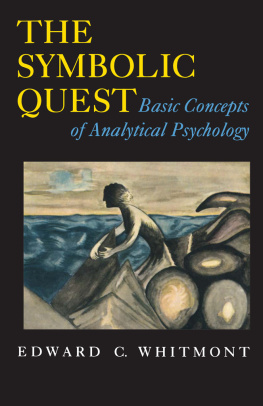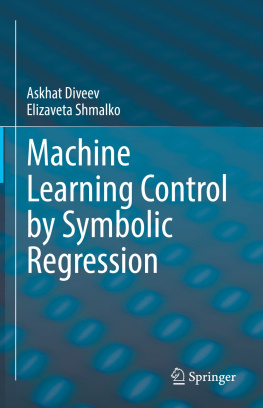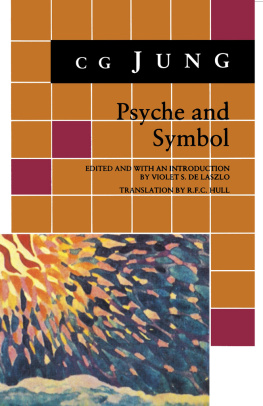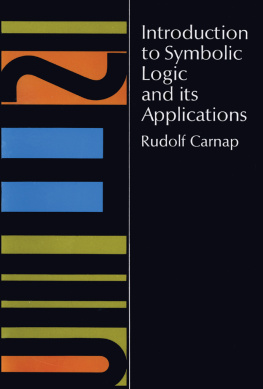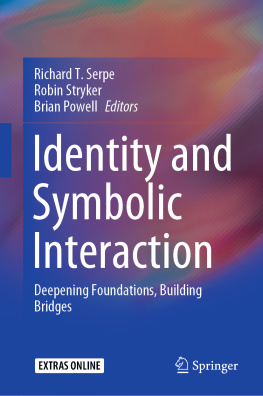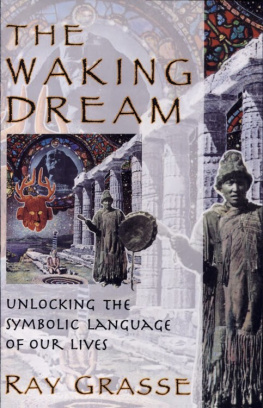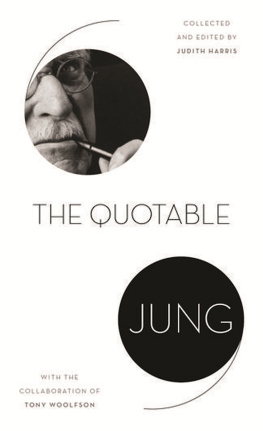THE SYMBOLIC QUEST
The
Symbolic
Quest
Basic Concepts of
Analytical Psycholosy
Edward C. Whitmont
PRINCETON UNIVERSITY PRESS
Princeton, New Jersey
Copyright 1969 by the C. G. Jung Foundation for Analytical Psychology
New material copyright 1991 by Edward C. Whitmont
All rights reserved
Published by Princeton University Press, Princeton, New Jersey
In the U.K.: Princeton University Press, Chichester, West Sussex
LCC 76-53645
ISBN 0-691-02454-5 (paperback edition)
ISBN 0-691-08609-5 (hardcover edition)
eISBN 978-0-691-21318-7
R0
Acknowledgments
I WOULD like to express my gratitude to those pioneer workers who carried forward and developed Jungs theories, especially Erich Neumann and Esther Harding, upon whose efforts much of the present volume is based; to Anneliese Aumller for her helpful advice in going through the manuscript; and to Patricia Spindler for assistance in editing the original lectures which were the basis for this book.
Acknowledgments are also due the following publishers, institutions and individuals who have very kindly given permission to quote from copyrighted material:
To the Princeton University Press in Princeton, New Jersey, the Bollingen Foundation in New York and Routledge & Kegan Paul in London for the passages from The Collected Works of C. G. Jung;
To Basic Books and to Sigmund Freud Copyrights Ltd., Mr. James Strachey and the Hogarth Press Ltd. for permission to quote from the Standard Edition of The Complete Psychological Works of Sigmund Freud;
To Bantam Books for material from The Dybbuk and Other Great Yiddish Plays; to Clarkson N. Potter and Anthony Blond Ltd. for Erwin Schrdingers article in On Modern Physics, to the Dial Press for Another Country by James Baldwin; to Harcourt, Brace & World for Jungs Modern Man in Search of a Soul and Psychological Types; to Harper and Row for Mircea Eliades Myths, Dreams and Mysteries and for the Koestler passage from Crossmans The God That Failed; to Holt, Rinehart & Winston and Laurence Pollinger Ltd. for the poem Snow by Robert Frost, to the Humanities Press Inc. and Routledge & Kegan Paul for Jean Piagets Language and Thought of the Child; to the Macmillan Company and A. D. Peters and Company for The Invisible Writing by Arthur Koestler; to International Universities Press for A Genetic Field Theory of Ego Formation by Ren Spitz and for the xkll material from Instinctive Behavior; to Alfred A. Knopf for Kahlil Gibrans The Prophet;
To W. W. Norton for Thought Reform and the Psychology of Totalism by R. J. Lifton; to Pantheon Books, a Division of Random House, for Jungs Memories, Dreams, Reflections, and for Esther Hardings Womens Mysteries; to the Philosophical Library for Martin Bubers Hasidism, Ananda Coomaraswamys Hinduism and Buddhism, and The Analysis of Dreams by Medard Boss; to Princeton University Press for the I Ching and for Jolande Jacobis Archetype/Complex/Symbol. To Sheed and Ward and the Harvill Press for Images and Symbols by Mircea Eliade; to Simon & Schuster for The Legends of the Bible by Louis Ginzberg; to the University of North Carolina Press for Cell and Psyche by E. W. Sinnott; to the Yale University Press for Ernst Cassirers Essay on Man;
To the Cambridge University Press for Science and Humanism by Erwin Schrdinger and for Michael Fordhams article in The British Journal of Medical Psychology; and to Routledge & Kegan Paul for Jungs Psychological Types;
To Verlag Hans Huber for Seelenkunde im Umbrich der Zeit by G. R. Heyer; to Ernst Klett Verlag for Meditation in Religion und Psychotherapie and for the Antaios article Pharao und Jesus als Shne Gottes by Emma Brunner-Traut; to Ksel-Verlag for Romano Guardinis Rainer Maria Rilkes Deutung des Daseins; to Rascher Verlag for Studien zur Analytischen Psychologie C. G. Jungs and for Aniela Jaffes Der Mythus vom Sinn; to Rhein Verlag for Der Schpferische Mensch by Erich Neumann and for Adolf Portmans Biologie und Geist; to Julius Springer Verlag for Kulturelle Bedeutung der Komplexen Psychologie;
To The American Psychologist for The Misbehavior of Organisms by Keller and Marian Breland; to Look Magazine for The Tense Generation by Samuel Grafton; to Spring for the passages from The Interpretation of Visions by C. G. Jung, for The I in Dreams by Sonja Marjasch, and for my own material published in The Role of the Ego in the Life Drama; and to H. K. Fierz for permission to use the passages from Psychologische Betrachtungen zu der Freskenfolge der Villa Dei Misteri in Pompeji by Linda Fierz-David.
I am also grateful to a former patient for his permission to use the drawing which appears as a frontispiece to this volume.
E.C.W.
Preface to the 1991 Edition
WHEN I SET OUT to review the text of this book, twenty years after the original publication, I wondered how many changes would be needed to bring it up to the ways in which the practice of analytical psychology has evolved. Many contributions in the fields of preoedipal dynamics and feminine psychology have enriched our clinical scope.
Under the impact of the sexual revolution and the drug culture, formerly rigid persona and superego-determined ego structures have softened and, at times, even vanished. In Freuds and Jungs days the repression of sexuality and spirituality by an overrigid ego accounted for the majority of psychopathology. Nowadays the problems lie more frequently with insufficient ego structuring, confusion and borderline pathology and the difficulties of finding new forms of I-Thou relationships in a world no longer regulated by viable collective standards.
During Jungs lifetime the main analytic thrust was toward opening a too rigidly structured ego to a dialogue with the nonpersonal psyche. His stress was on the necessity of the egos confronting and coming to terms with the world of archetypes. Today, perhaps owing to the dissolution of traditional standards, and the consequent weakening of persona support as well as the influx of often inadequately understood Eastern religious and cult influences, we encounter many more instances of inadequate egos being lost in the world of archetypes. An adequate personal ego structure has to be built before the transpersonal unconscious can be faced. To this end, introversion alone does not suffice. Working on ones relationships to partners, group and community is an equally important aspect of ego building and individuation.
In response to this situation various schools of Jungian practice have developed. The developmental school (Andrew Samuels, Jung and the Post Jungians, London: Routledge & Kegan Paul, 1985, p. 15) tends to promulgate the clinical approach that emphasizes the reductive dealing with personal traumatic, early childhood causation over the a priori archetypal data of the structuring and guiding Self. The classical and archetypal schools, in turn, tend to concern themselves more with archetypal than developmental dynamics and with the analysis of transference and countertransference. In their extreme forms both positions tend to identify with one aspect of what is in fact an interdependent field of complementary dynamics.

